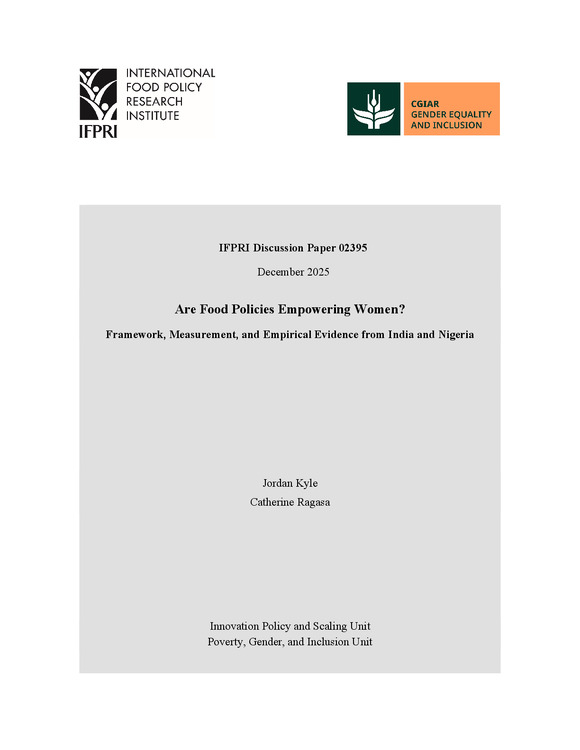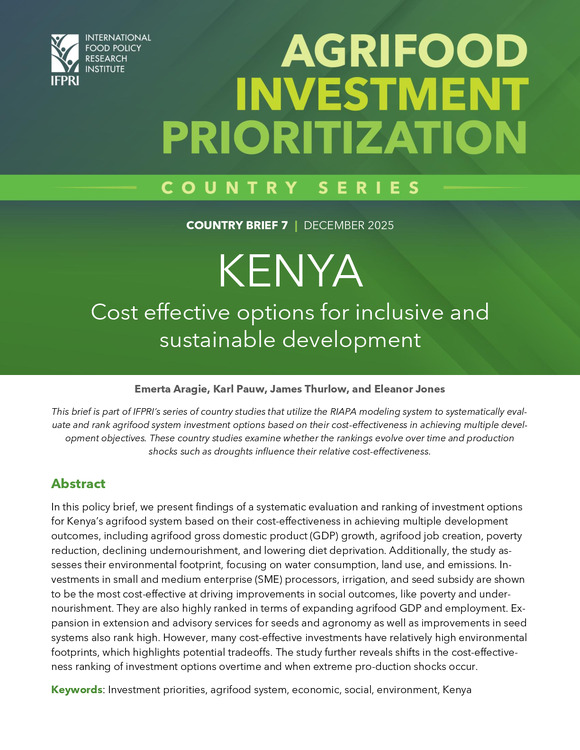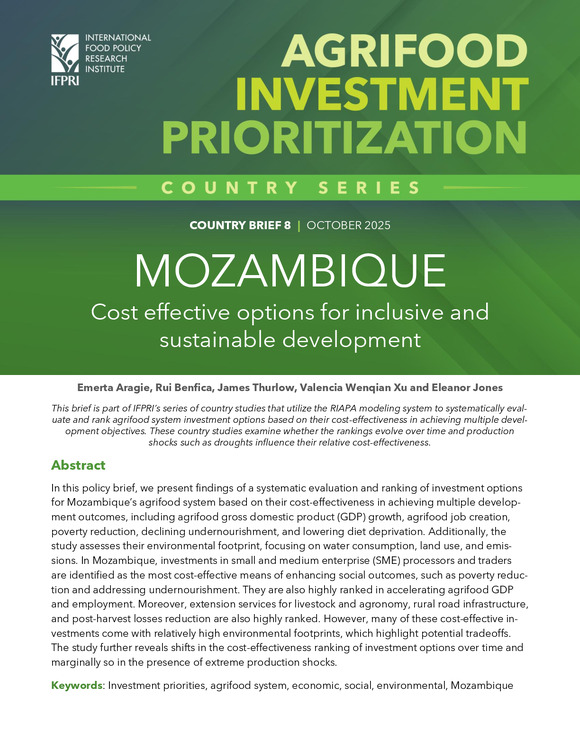This work is part of IFPRI’s ongoing country level-analyses to identify and rank agrifood investments based on their cost-effectiveness in achieving multiple development goals. Using the RIAPA modeling system, the analysis evaluates how different investments contribute to outcomes such as agrifood GDP growth, job creation, poverty reduction, improved nutrition, and environmental sustainability. This body of work also examine how investment priorities may shift over time and under shocks like droughts, helping inform more adaptive and forward-looking strategies.
The results demonstrate the importance of integrating data- and model-driven insights into investment and planning decisions, especially given the complex synergies and tradeoffs involved. They also emphasize the need to account for environmental consequences to avoid passing the costs of climate change on to future generations. Strengthening climate adaptation and mitigation strategies is critical to improving the long-term productivity and resource use efficiency of sectors that drive inclusive and sustainable development.













